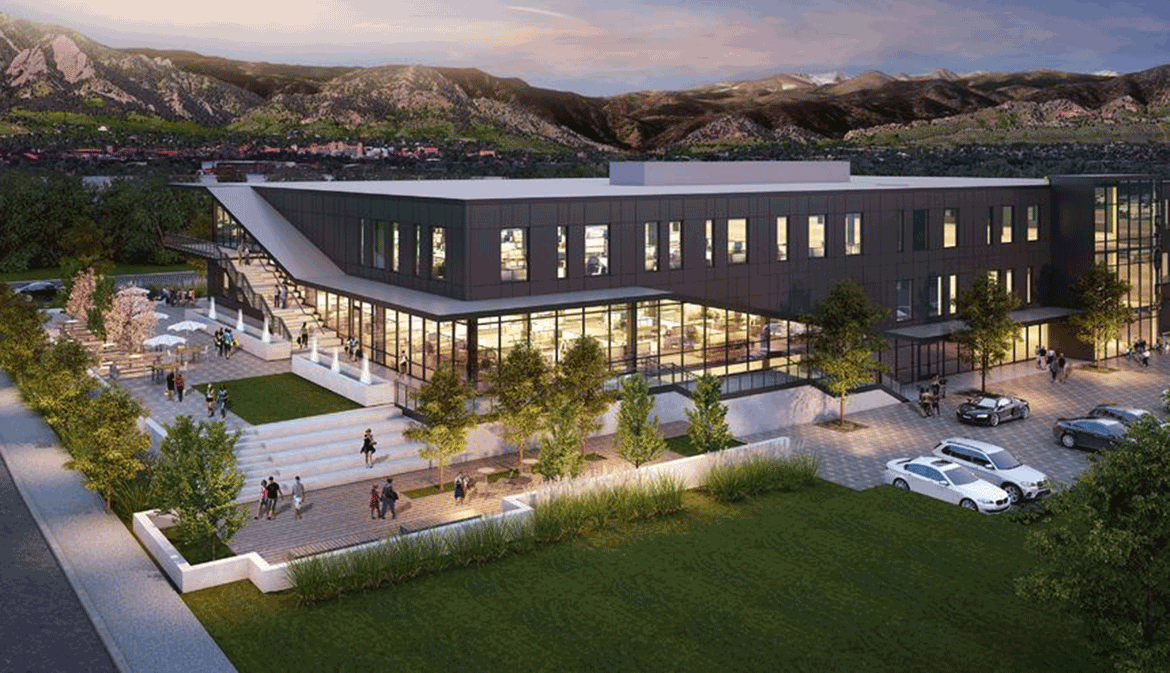Peter Grant
April 4, 2022
Blackstone’s BioMed Realty Trust Inc., a real-estate owner that focuses on life science and tech buildings, is paying more than $600 million for Flatiron Park, a 22-building complex. BioMed Realty plans to invest another $200 million in the property, in part toward converting traditional office space to labs targeted at new and existing Boulder life-sciences companies.
Flatiron Park devotes about 15% of its campus to life-science tenants, including biotech firms like KBI Biopharma Inc. and Enveda Biosciences Inc. BioMed Realty said it believes that eventually half the campus could be filled with life-science businesses because of intense demand in Boulder for specialized lab and office space.
While future demand for traditional office space remains in flux as more companies embrace remote work or hybrid models, demand for lab space shows no sign of flagging.
Interest in this space from biotech and pharmaceutical companies was already strong in the years leading up to the pandemic. It intensified after Covid-19 caused billions of dollars to flood into the search for vaccines and therapeutic drugs. What’s more, many of the jobs in life-sciences companies require special lab and office space and can’t be done from home or remotely.
The life-sciences business had been mostly concentrated around Boston, San Diego and San Francisco. But as the pharmaceutical and biotech industries have grown over the past decade, emerging life-sciences hubs in markets like Boulder, Philadelphia, Seattle and Atlanta have expanded.
Life-sciences office space now totals about 166 million square feet nationwide. That is a 65% increase since 2014, according to Travis McCready, head of life-sciences markets for real-estate services firm JLL.
The Boulder market has about 3 million square feet of the nation’s life-sciences space and all of it is filled to capacity.
“It’s 100% leased,” said Jacob Werner, co-head of Americas acquisitions for Blackstone Real Estate. “There is no space for these companies to grow. That’s why we’re coming.”
With a population of about 110,000 people, Boulder has been an incubator of life-sciences businesses that have roots at the University of Colorado’s campus. The city’s laid-back lifestyle and proximity to hiking, skiing and rock climbing in the Rocky Mountains also has appealed to business units of big technology companies like Alphabet Inc.’s Google, Twitter Inc. and Apple Inc.
“If you’re a young, world-class chemist or biologist and what you care about deeply is money and status, you’re going to move to Boston or San Francisco,” said Kyle Lefkoff, founder of Boulder Ventures, a venture-capital firm in the city. “If you’re a young, world-class chemist or biologist and what you care deeply about is running, rock climbing, skiing, and riding your bike, you’re going to move to Boulder.”
Blackstone owns and operates more than 13.7 million square feet of life-sciences space in the U.S. and U.K. During the pandemic it also made a $3.45 billion acquisition of property mostly in Cambridge, Mass., and recapitalized BioMed Realty for $14.6 billion.
“We are actively looking at other markets,” Mr. Werner said.
Despite all the demand, life-sciences real estate can still be a tricky business because tenants are highly dependent on venture capital and government funding, which has been abundant in recent years, partly due to low interest rates that are now rising. Developers typically build new space without preleasing on the expectations that they’ll be able to rent it to startups and other firms that are growing.
The growth of the pharmaceutical and biotech firms has fueled a record boom in the development of new space. If funding dries up, developers could be left holding empty space. Blackstone executives said they are aware of the risks in the business and that they’ll add life-sciences space at Flatiron Park in phases.
“If there are hiccups in the market, we can adjust fairly quickly,” said Tim Schoen, BioMed’s chief executive.

